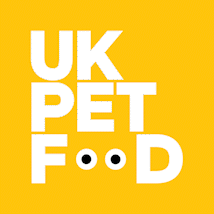Insect-Based Ingredients in Pet Food
As always, the most important factor in feeding our pets is giving them a complete and balanced diet, appropriate for their species and life-stage.
When made into complete pet food, insect* proteins and lipids (fats) can contribute to nutritious and palatable products that can also be environmentally sustainable (Fera and Minerva, 2019). While there is a wide range of pet food products to choose from, insect-based products offer a great alternative to owners who prefer to feed their pets a diet that is sourced from ingredients other than traditional livestock species.
Common Types Of Insects Used In Production Of Feed
Among the seven species of insects that are authorised in the EU for use in pet food, these three are the most developed species of farmed insects for use in pet food:
- House crickets (Acheta domesticus)
- Yellow mealworms (Tenebrio molitor)
- Black soldier fly (BSF) (Hermetia illucens)

What is unique about insects?
Insects are able to eat by-products and food that are surplus to human requirements and efficiently convert them into high quality proteins and fats. This biological re-processing of by-products is the key concept underpinning the use of insect protein in animal feed.
Interesting Facts
- Farmed insects are typically fed on a variety of diets from spent grains to palm kernel, fruits, and vegetable crop by-products.
- The initial farms mainly began in the tropics but now span the globe. Today, there are over 100 farms in European countries such as Holland, France, Poland, Belgium, and UK.
- Most insect farms have multiple insect species being farmed on a commercial scale.
Different Formats Of Insect-Based Ingredients
The insects are mainly rendered into high protein meal (e.g. 55% protein with 80% digestibility) and lipids (e.g. 95% purity) or made into puree which is then frozen. Whole dried alternatives are available, but these are mainly targeted at the wild bird market.

Nutritional Profile And Potential Added Benefits
Insects such as BSF are rich in protein and have a clear potential in animal nutrition. The well-balanced amino acid profiles of certain insect ingredients are shown to be comparable to meat- and fishmeal (Spranghers et al., 2017). Due to their novel protein structure there is a lot of interest for use of insects in diets that are intended for pets diagnosed with food intolerance or allergies. Additionally, insects can have high fats/oils, mineral and vitamin levels, depending on what they are fed on. For more information on food allergy and intolerance in cats and dogs please visit www.pfma.org.uk/food-allergy-factsheet.
Environmental Benefits
Although more research is required, preliminary reports suggest that insect production at large scale could reduce environmental impacts (less greenhouse gas emission, water, and land usage) compared to conventional livestock production (Fera and Minerva, 2019).
Insects are also efficient feed converters, depending on their species and the diet consumed. Mealworm and house crickets have been reported to convert some feed sources into body mass with similar efficiency to poultry (Oonincx et al, 2015).
Given the benefits of insects, will there still be a place for using Animal-by Products in pet food?
In Europe alone, annually, around 18 million tonnes of animal by-products arise from slaughterhouses and human food production plants (EFPRA, 2020). Recycling of these by-products, where safe, into nutritious pet food and animal feed creates major economic and environmental benefits (Jedrejek et al., 2016).
Consumer Attitude And Acceptance Level
Market research work undertaken by PROteINSECT (2016) indicates that a high percentage of consumers demonstrate acceptability of insects as a protein source in animal feed (70% of those surveyed said that it is totally acceptable to feed insect protein to farmed animals). They also showed a desire for more information about insects as an alternative sustainable protein source.
Growing media attention and campaigns by farmers, academics, professional bodies (such as BVA) and pet food companies are helping to increase acceptability of insect-based ingredients among pet professionals and owners.
Science supports insect use and although more research is needed there is already strong evidence to the benefits of using insects.
UK Regulatory Bodies
DEFRA (Department for Environment Food & Rural Affairs) and APHA (Animal and Plant Health Agency) are in charge of Animal By-Products regulations while FSA (Food Standards Agency) are responsible for labelling and claims, feed safety and feed hygiene regulations. For more regulatory information please visit: https://www.gov.uk/guidance/using-animal-by-products-to-make-pet-food
* These are specific, authorised, species of insects that are commercially produced, under controlled conditions, for animal feed. EU Regulation No 2017/893 authorised the use of insect proteins originating from seven insect species which are not pathogenic nor have other adverse effects on plant, animal, or human health.
